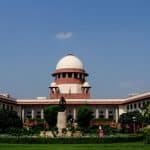What is National Human Rights Commission (NHRC) ?
- The National Human Rights Commission (NHRC) of India is an autonomous public body which came into existence on 12 October 1993.
- Headquarter is situated in New Delhi, India.
- It was constituted under the Protection of Human Rights Ordinance of 28 September 1993.
- Protection of Human Rights Act, 1993 (TPHRA) gave it a statutory basis.
- It is the national human rights institution which is solely responsible for the protection, safeguard and promotion of human rights, defined by the Act as “rights relating to life, liberty, equality and dignity of the individual guaranteed by the Constitution or embodied in the International Covenants”.
- It is accredited with “A status” by the International Coordinating Committee of National Human Rights Institutions (the ICC), which implies that it is in conformity with the Paris Principles of October, 1991.
It’s Importance and role in “Human Rights”
- It’s a type of governmental agency constituted as a civilian agency for the federal law enforcement related to “Human rights”.
- The basic rights that are related to the life, freedom, equality and dignity of the individual that are guaranteed by the national constitution or assured by the International covenants and enforceable by the courts in India are generally regarded as “Human Rights”.
- “Commission” means the National Human Rights Commission constituted under section of: “All human beings are born free and equal in dignity and rights known as Human rights, as commonly understood, are the rights that every human being is entitled to enjoy freely irrespective of his religion, race, caste, sex and nationality, etc.”
- Different people have their different meaning relating to “Human Rights” and surely they are not static in any manner at any point of time and therefore it’s very important and paramount thing that new rights to be recognized and enforced in the law from time to time.
Operational Structure and Internal Composition
- The NHRC (National Human Rights Commission) consists of:
- A Chairperson, retired Chief Justice of India
- One Member who is, or has been, a Judge of the Supreme Court of India
- One Member who is, or has been, the Chief Justice of a High Court
- Two Members to be appointed from among persons having knowledge of, or practical experience in, matters relating to human rights
- In addition, the Chairpersons of four National Commissions of (i) Minorities (ii) SC and ST (iii) Women serve as ex officio members.
Appointment Procedure
- Sections 3 and 4 of TPHRA states that the Chairperson and members of the NHRC are appointed by the President of India, on the recommendation of a committee consisting of:
- The Prime Minister (chairperson)
- The Home Minister
- The Leader of the Opposition in the Lok Sabha (House of the People)
- The Leader of the Opposition in the Rajya Sabha (Council of States)
- The Speaker of the Lok Sabha (House of the People)
- The Deputy Chairman of the Rajya Sabha (Council of States)
Functions
- TPHRA mandates the NHRC to perform the following functions:
- proactively or reactively inquire into violations of human rights or negligence in the prevention of such violation by a public servant
- by leave of the court, to intervene in court proceeding relating to human rights
- to visit any jail or other institution under the control of the State Government, where persons are detained or lodged for purposes of treatment, reformation or protection, for the study of the living conditions of the inmates and make recommendations
- review the safeguards provided by or under the Constitution or any law for the time being in force for the protection of human rights and recommend measures for their effective implementation
- review the factors, including acts of terrorism that inhibit the enjoyment of human rights and recommend appropriate remedial measures
- to study treaties and other international instruments on human rights and make recommendations for their effective implementation
- undertake and promote efforts and research in the field of human rights
- engage in human rights education among various sections of society and promote awareness of the safeguards available for the protection of these rights through publications, the media, seminars and other available means
- promote and encourage the efforts of NGOs and institutions working in the field of human rights
- such other function as it may consider it necessary for the protection of human rights.
State Human Rights Commission
- State Human Rights Commission (SHRC) are the constitutional bodies constituted by state government to exercise and enforce the powers conferred upon, and to perform the functions assigned related to “Human Rights” at state level.
- At present, 23 states have constituted SHRC.
Controversy
- Questions were raised to the usefulness of Human Rights Commission set up by the government at both national and state levels when a report concerning the manner of which the Shivani Bhatnagar murder controversy case was rejected, a case which involved high-ranking officials being implicated in the murder of a journalist.
- In mid-2011, the chairman of the NHRC, ex-Chief Justice K.G. Balakrishnan came under a cloud for allegedly owning assets disproportionate to his income. His son-in-law P. V. Srinijan, an Indian National Congress politician, had to resign for suddenly coming into possession of land worth ₹25 lakhs. Many jurists, activists, bureaucrats have called on Balakrishnan’s resignation pending from the HRC pending inquiry.











